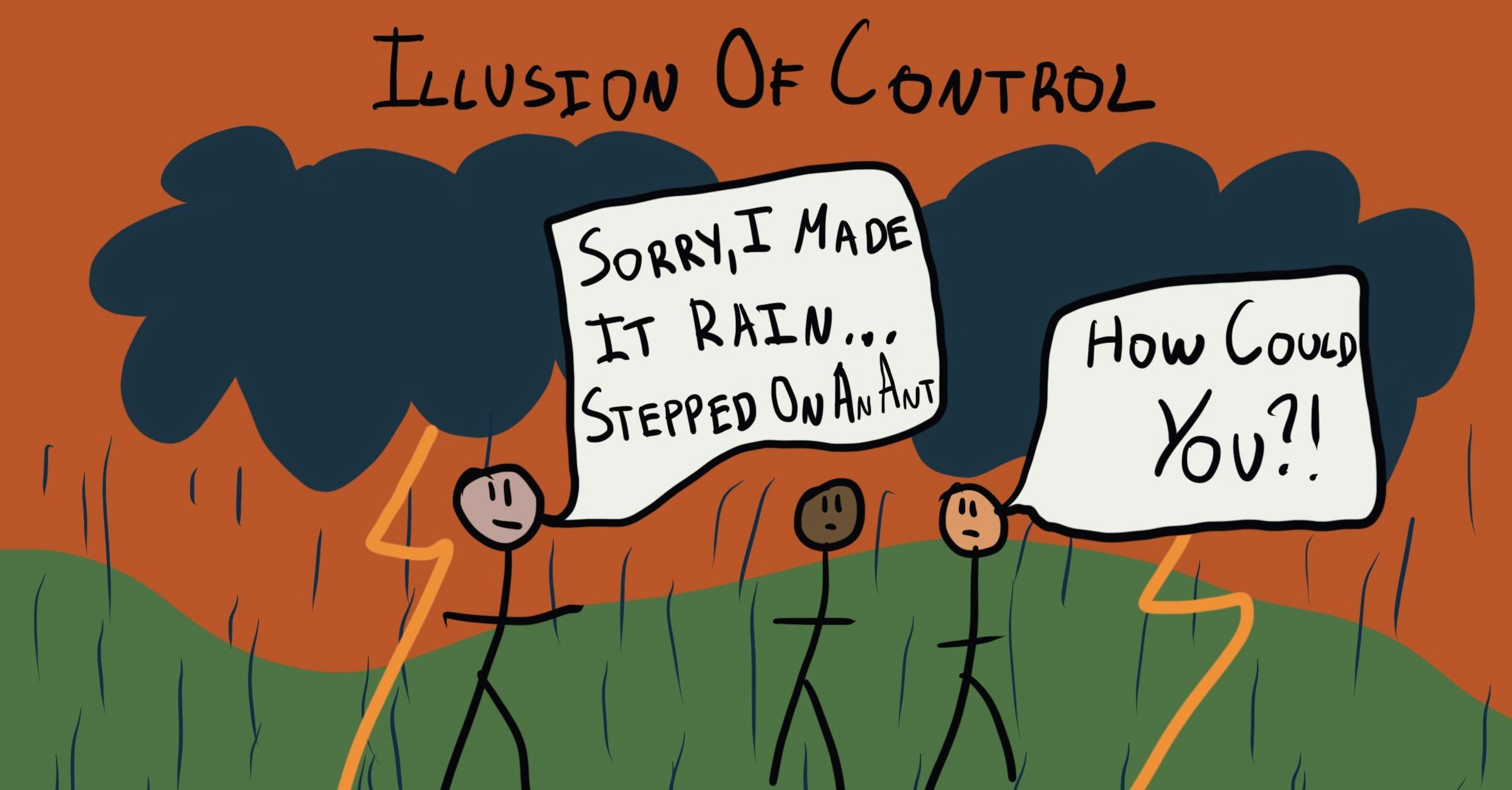Pourquoi nous croyons avoir plus de contrôle sur le monde que nous n'en avons en réalité
a expliqué.
Bias
Qu'est-ce que l'illusion de contrôle ?
L'illusion de contrôle décrit la façon dont nous croyons avoir un plus grand contrôle sur les événements que nous n'en avons en réalité. Même lorsqu'un événement est le fruit du hasard, nous avons souvent l'impression de pouvoir l'influencer d'une manière ou d'une autre.

Lieu d'apparition
Vous allez assister avec votre famille au match de championnat de votre équipe de football préférée. Comme toujours, votre père porte son maillot "porte-bonheur" aux couleurs de l'équipe. Il est un peu petit sur lui ces derniers temps, mais il insiste pour le porter, car il pense que cela augmentera les chances de victoire de l'équipe.